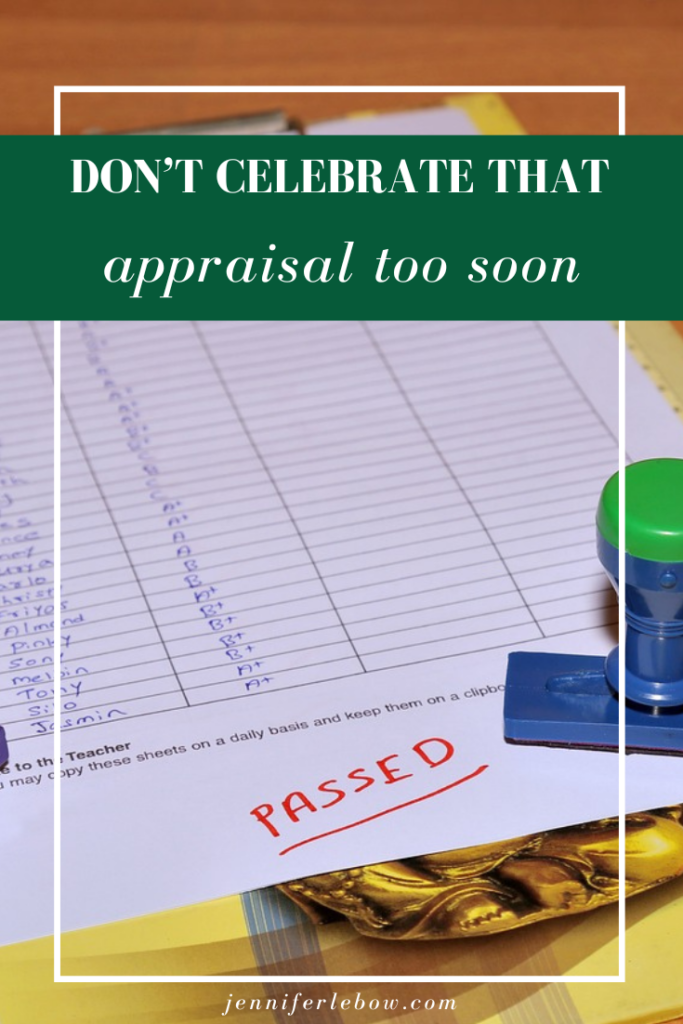
What is the appraisal?
When you buy a home and are getting a mortgage, the lender will require an appraisal. They want to make sure they are lending an amount in line with the independently assessed value (the appraisal amount). They look at comparable sales in the area, make adjustments and come up with a value. If it comes in lower than purchase price, many buyers contest it as it may require them to cover the difference in cash or pay PMI on their loan. However, in most cases, if the appraisal comes in at purchase price or higher, everyone in the transaction breathes easier and considers that step checked off the list. Imagine my surprise when I recently discovered that when an appraisal comes in (regardless of purchase price) higher than many comps suggest is should, it can create a problem.
A cautionary tale
When the appraisal comes in at purchase price or higher
I recently sold a house and it had some very specific features that made it worth a lot more to my clients than the list price. The listing agent had (wisely) priced it based on what the comps suggested. I explained to them that it would never appraise at the number they were offering and that they needed to be prepared for that likelihood. My buyers got the house and the appraisal came in at value (purchase price). We were all thrilled as well as shocked. I actually remember saying to them, “You could have knocked me over with a feather.” We thought all was well until….just a few days before closing, the lender’s underwriter ran it through their automated system. The system flagged it as being so far above the range it provided that a second appraisal was required. I did not know about this second, automated appraisal. I believe it may only happen with jumbo loans, but regardless, I was surprised.
When a second appraisal is ordered
Not only did the second one come in appreciably lower (luckily, my clients had prepared for that), but having to wait for the second appraisal threatened our ability to close on time. Since my buyers’ offer was NOT contingent on a mortgage/appraisal, the seller could have found them in default for not meeting the settlement date and terminated, while keeping my clients’ very large deposit. Fortunately, they agreed to extend settlement, but the point is that it could have been a disaster!
Lessons to be taken from this experience
- If you think it’s even remotely possible that a property won’t appraise for the purchase price your clients are offering, ensure that you make that clear as well as being sure they understand their financial options in the event of a low appraisal. Be sure to discuss appraisal gap coverage (unless they are making an offer that is not contingent on the appraisal, like my clients did) and encourage them to speak to their lender about ways to absorb some of the shortfall. Be sure the buyers understand the risks and advantages/disadvantages of the various ways you can write the offer to reflect their choices.
- If the appraisal comes in low, talk to the lender to determine if you can contest it.
- If the appraisal comes in at or above the agreed-to purchase price, check with the lender whether/when it will go through a second review later in the process so you avoid unpleasant surprises. Remember, it’s not just an issue of whether your clients have to find more cash to cover the gap in purchase price and appraised value, but if there will be a delay. You want to prevent them from potentially defaulting and losing the house and/or their deposit.
If you are relocating to the Philadelphia/Main Line area, please go to my blog page and search for posts using the relocation tag. Contact me to discuss your Philadelphia area relocation! jen@jenniferlebow.com/610 308-5973


Leave a Reply